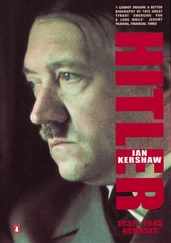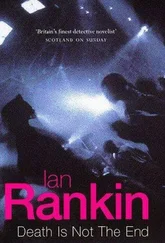If each of these examples illustrates the corruption of military professionalism in the Third Reich, the last is of a commander, Colonel-General Ferdinand Schörner, of a different type, a fanatical loyalist from ingrained Nazi conviction, a believer in ‘triumph of the will’ and the need for a revolution of the spirit in the army. 106An indicator of Schörner’s acknowledged fanaticism was that he had served for a brief spell in March 1944 as ‘Chief of the NS-Leadership Staff of the Army’, responsible for coordinating relations between the military and the Party. 107He brought to Army Group North on his transfer there on 23 July an unprecedented level of ferocious internal discipline that produced, as in his other commands, countless executions for ‘cowardice’, ‘defeatism’ and desertion. He made it plain at the outset that the slightest show of disobedience would be mercilessly punished. In an early declaration to his generals, he expounded his belief that the war was ‘not to be won by tactical measures alone’. Belief, loyalty and fanaticism were increasingly necessary as the enemy neared German borders. Everyone had to realize that the aim of Bolshevism was ‘the destruction of our people’. It was a ‘struggle for existence’ in which the only alternatives were ‘victory or downfall’. To stop the ‘Asiatic flood-wave’, as he described the Soviet advance, faith in victory was ‘the strongest life force’. He ended his communiqué: ‘Heil to the Führer’. 108Ten years after the war, an officer who had served under him described Schörner as trying ‘to replace energy through brutality, operational flexibility through inflexible principles of defence, a sense of responsibility through lack of conscience’. 109With such ruthless leadership, the slightest sign of insubordination, let alone any hint of mutiny, was tantamount to suicide.
Quite apart from their personal loyalty to Hitler, and whatever the individual variation in their views on his conduct of the war, or Germany’s prospects, these and other leading generals saw their unconditional duty as doing all they could to defend the Reich against enemy inroads. Nazi values intermingled, often subliminally, with old-fashioned patriotism. As the pressure on the fronts, east, west and south, mounted inexorably, field commanders had little time for other than urgent military matters. Had they been of a single mind, and even dreamt of staging another putsch to end the looming catastrophe, organizing one would have proved impossible. So would confronting Hitler with an ultimatum to stand down or negotiate peace terms. In practice, however, such thoughts never entered the heads of the military elite. Jodl summarized the stance at the top of the military establishment: ‘fortunately the Allied demand for unconditional surrender [laid down at the Casablanca Conference in January 1943] has blocked the way for all those “cowards” who are trying to find a political way of escape.’ 110Doing what was humanly possible to prevent the destruction of the Reich was seen as the unquestioned imperative. In adhering to such a goal, of course, the generals ensured that precisely this destruction would happen.
At a time when Germany was rocked by disastrous military defeat, amid soaring anxieties over the superiority of enemy forces, Hitler’s war leadership and the prospects for Germany’s future, the assassination attempt and uprising had the effect of strengthening the regime—at least in the short term. In the aftermath, mentalities, structures of control and possibilities for action were all changed.
Attitudes were adjusted—to some extent reshaped. Hitler himself was changed. His paranoia had never been far from the surface. Now it knew no bounds. He sensed treachery on all sides. Treachery gave him the explanation of military failure and of any trace of what he saw as weakness in those around him. It prevented any need for the narcissistic personality to contemplate his own part in the catastrophe. ‘Anyone who speaks to me of peace without victory will lose his head, no matter who he is or what his position,’ he was later claimed to have repeatedly threatened those in his vicinity as the fronts were collapsing. 111Such a mentality at the head of the regime percolated outwards and downwards. Blind fury, not just at the conspirators, but at the officer corps as a whole, fuelled by a hate-filled tirade by Robert Ley, head of the Labour Front and Organization Leader of the Nazi Party, which advocated the extermination of the aristocracy (described as degenerate, idiotic ‘filth’)—many of the plotters had aristocratic backgrounds—ran in the veins of Party fanatics in these days, but spilled over, too, into the wider public. 112Bormann even had to contain it in the interests of retaining his own control rather than pour oil onto the flames. 113Wise and cautious voices kept quiet. Signs of anything that could be interpreteted as defeatism now invited fearful reprisals.
Within the armed forces, leading officers of Schörner’s kind needed no encouragement. But the change in mentalities went beyond soldier fanatics. Belief in victory, commitment to the last reserves of will to hold out, rejection of anything that smacked of the slightest doubt in the struggle, became more than ever incontrovertible tenets of all public parlance, constantly reinforced by the more widely deployed NSFOs. Private doubts were best not aired. At whatever rank, anyone voicing criticism of the war effort was taking a risk. Even close circles of friends and comrades had to take care lest any comment that could be seen as subversive should reach prying ears. From the top downwards in every division, every battalion, every company, officers felt the need to demonstrate loyalty and clamp down on the slightest sign of dissent. It was little wonder that the numbers of executions in the military, as in the civilian sphere, started to soar.
The failed uprising also brought the changes we have examined to the structures of rule. Some of these changes had already been initiated, in the light of the intensified pressures of the war, when Stauffenberg’s bomb went off. 114The extended role of the RVKs, and, with that, the increased scope for intervention by the Party into state bureaucracy and spheres of military responsibility offers one example. Goebbels saw this as a further sharp incision into the power of the generals. 115But even where developments were already in train, the events of 20 July and their aftermath served as a sharp accelerator. Radicalization along the line acutely intensified. It was as if the dam had broken and now, finally, a revolutionary war could be fought, on truly National Socialist lines. 116
The pillars of the regime had been shaken by the events of 20 July, but were left not only standing, but buttressed. Hitler’s charismatic appeal had long since been weakened, but had been temporarily revived by the attempt on his life. More importantly, his hold over the regime was undiluted. The major wielders of power were divided among themselves but united in their dependence upon Hitler’s favour. Each general of the Wehrmacht, too, knew his command lasted only until Hitler took it away. Beneath Hitler, the regime’s grip had been strengthened. The key controls of the regime were in the hands of Nazi leaders with nothing to lose: they knew, and had participated in, its crimes against humanity, most obviously the extermination of the Jews.
Himmler’s empire extended into the Wehrmacht itself. His ruthless repression, now increasingly against members of the ‘people’s community’, as well as conquered ‘Untermenschen’ and ‘racial enemies’, plumbed new depths. Mobilization for total war underwent a frenzied phase of activity under Goebbels, who at the same time cranked up the propaganda machine into overdrive for the backs-to-the-wall effort. Bormann revitalized the Party, finally offering it the prospect of the social and political revolution its fanatical activist core had always sought. And Speer defied adversity in new exploits of mobilizing the armaments industry.
Читать дальше












